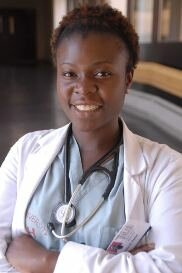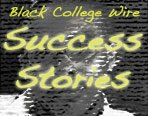| Howard Med Students Start Health Clinic |

|

|

|
| By Tahirah Hairston, staff reports -- Black College Wire | |
|
This summer, a dream came true for third-year medical student Raolat Adulai with the launch of Howard University’s Freedman’s Clinic. While a dream came true for her -- she is director of the faciity -- she will change the lives for many low-income, uninsured patients in the District of Columbia. 
Justin D. Knight/HU Office of Communications
Raolat Abdulai
According to a university news release, Abdulai, 27, from Silver Spring, Md., attended a course being offered in Portland, Ore., on how to organize student-run clinics. She found overwhelming support for a free clinic when she returned to Howard. “When we had a meeting to see who might be interested, more than 100 students showed up, and there were some faculty members as well,” Abdulai said. She later was selected from more than 3,000 women who applied to a joint project between, O, The Oprah Magazine and The White House Project, a national nonprofit organization working to advance women’s leadership. The initiative, entitled Women Rule!, provided training for a select group of women leaders to bring their dreams to fruition. She and other students later visited and observed the workings of a student-run free clinic at Bread for the City, a non profit agency that provides food, clothing, medical care, legal and social services for low-income Washington residents. Undeterred by those obstacles, she and fellow students applied to the Association of American Medical Colleges for funding and received a $30,000 grant. “With the state of the economy, people wind up losing their employment and with that they lose health insurance,” Mouton said. “The students are really the backbone of the program.They are the ones who implement and plan it. The clinic helps the students in several different ways and they are learning much more than I did during medical school.” According to Mouton, “They learn invaluable things to use in their future medical careers like how to set up a practice.” Mouton noted that the students have plans for the future of the clinic, but right now they are just trying to work out the kinks and build a foundation for the structure, creating a sustainable enterprise. Tahirah Hairston writes for The Hilltop, the Howard University student newspaper, which originally published a version of this article. |
|
| Posted Aug. 28, 2009 |
| < Prev | Next > |
|---|



